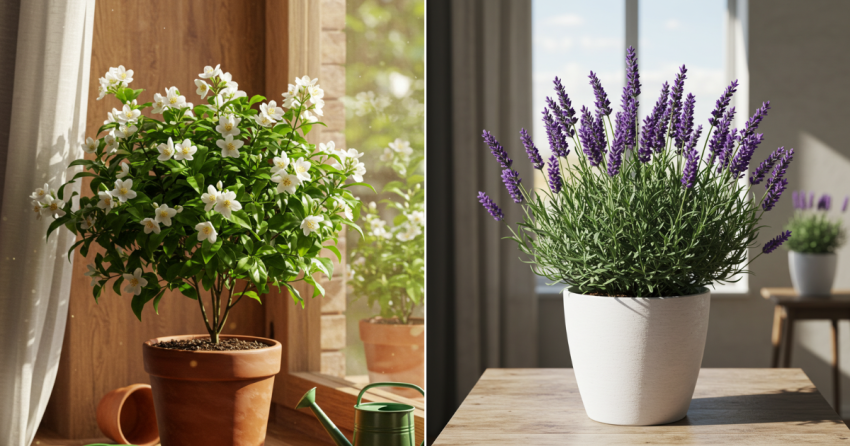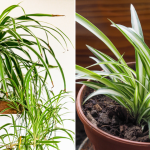- Aroma: Bright, tangy, and invigorating.
- Care Tips: Citrus trees require plenty of sunlight and well-draining soil. Water regularly but avoid overwatering.
- Bonus: Enjoy the added benefit of homegrown citrus fruits for cooking or garnishing drinks.
5. Scented Geraniums (Pelargonium spp.)
Scented geraniums come in a variety of fragrances, including rose, lemon, mint, and even chocolate. These versatile plants are easy to care for and can add a unique scent to your home.
Why Choose Scented Geraniums?
- Aroma: Varies by variety (rose, citrus, mint, etc.).
- Care Tips: Scented geraniums prefer bright light and well-draining soil. Allow the soil to dry out slightly between waterings.
- Bonus: Their leaves can be used to make potpourri or herbal teas.
6. Eucalyptus (Eucalyptus spp.)
Eucalyptus is famous for its fresh, minty aroma that can clear the mind and invigorate the senses. While often grown outdoors, smaller varieties like Eucalyptus gunnii can thrive indoors.
Why Choose Eucalyptus?
- Aroma: Crisp, minty, and refreshing.
- Care Tips: Eucalyptus needs bright light and well-draining soil. Water when the top inch of soil feels dry.
- Bonus: The leaves can be used in DIY home remedies, such as steam inhalations for congestion.
7. Rosemary (Rosmarinus officinalis)
Rosemary is not just a culinary herb; it’s also a fantastic houseplant with a pine-like fragrance that can freshen up any room. Its needle-like leaves release a subtle, earthy scent when touched.
Why Choose Rosemary?
- Aroma: Woody, herbal, and slightly camphoraceous.
- Care Tips: Rosemary thrives in bright light and well-draining soil. Allow the soil to dry out between waterings.
- Bonus: Use fresh rosemary sprigs in your cooking for added flavor and aroma.
Tips for Growing Fragrant Houseplants
- Light Requirements: Most fragrant houseplants need bright, indirect light to thrive. Place them near windows but avoid direct sunlight, which can scorch their leaves.
- Humidity: Many fragrant plants, like gardenias and jasmine, prefer higher humidity levels. Use a humidifier or place a tray of water near the plants to increase moisture.
- Watering: Overwatering is a common issue. Always check the soil moisture before watering and ensure proper drainage.
- Pruning: Regularly prune your plants to encourage new growth and maintain their shape. This also helps to release more fragrance.
- Fertilizing: Use a balanced fertilizer during the growing season to keep your plants healthy and blooming.
Conclusion
Incorporating fragrant houseplants into your home is a natural and aesthetically pleasing way to enhance your living space. Whether you prefer the sweet scent of jasmine, the refreshing aroma of eucalyptus, or the zesty fragrance of citrus, there’s a plant to suit every preference. Not only do these plants make your home smell amazing, but they also offer numerous health benefits, from improving air quality to reducing stress.
So, why not bring a touch of nature indoors and let these 7 best smelling houseplants transform your home into a fragrant sanctuary? With proper care, these plants will reward you with their beauty and delightful aromas for years to come.


